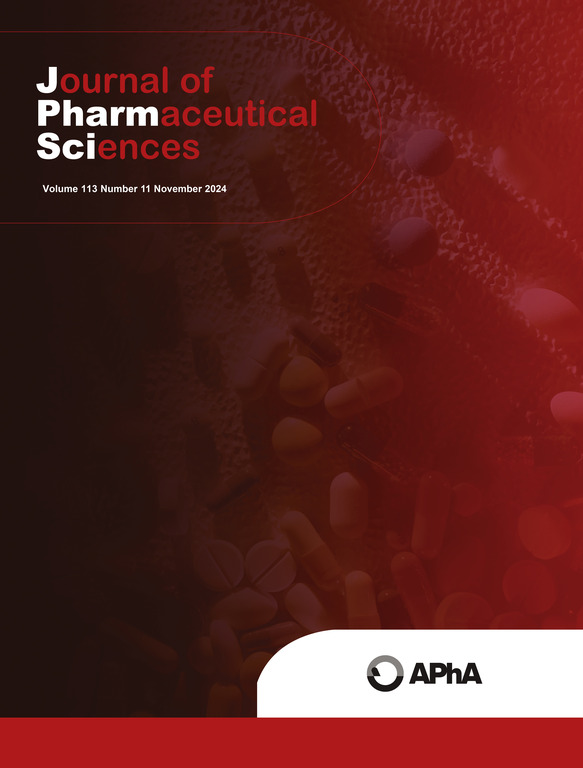Improved identification of host cell proteins in monoclonal antibodies by combining filter-aided sample preparation and native digestion
IF 3.7
3区 医学
Q2 CHEMISTRY, MEDICINAL
引用次数: 0
Abstract
Host cell proteins (HCPs) in biotherapeutics can present potential safety risks or compromise product stability at trace levels. Therefore, removal, testing, and characterization of HCPs are critical throughout biotherapeutic process development. While enzyme-linked immunosorbent assay (ELISA) is the gold standard for quantifying HCPs, it does not provide information on HCP identity. As a result, HCP analysis by liquid chromatography-mass spectrometry (LC-MS) has gained prominence for its ability to identifying HCPs. However, compared to ELISA’s parts-per-billion sensitivity, LC-MS is limited by its dynamic range, often unable to cover magnitude difference between HCP and biotherapeutic concentrations. Thus, an effective HCP enrichment method is highly desirable. In this study, we propose a new strategy for HCP identification that combines filter-aided sample preparation (FASP) with native digestion, followed by shotgun proteomics analysis. This approach improves mAb removal compared to standard native digestion, enabling greater HCP enrichment and identification. Our method detects all spiked proteins at 1 ppm and most at 0.5 ppm, ranging from 12 to 470 kDa, demonstrating broad molecular weight coverage of HCPs. A proof-of-concept analysis using the NISTmAb standard demonstrates that our filter-aided native digestion identifies 155 more HCPs than the standard native digestion. When applying this strategy to an in-house antibody with low amounts of HCPs, we can quantify HCPs at levels as low as 0.03 ppm, demonstrating the high sensitivity in HCP characterization.

结合过滤辅助样品制备和天然消化技术改进单克隆抗体中宿主细胞蛋白的鉴定。
生物治疗药物中的宿主细胞蛋白(HCPs)在微量水平下可能存在潜在的安全风险或损害产品的稳定性。因此,去除、检测和表征hcp在整个生物治疗过程中至关重要。虽然酶联免疫吸附试验(ELISA)是定量HCP的金标准,但它不能提供HCP身份的信息。因此,液相色谱-质谱(LC-MS)分析HCP因其识别HCP的能力而获得了突出的地位。然而,与ELISA的十亿分之一灵敏度相比,LC-MS受其动态范围的限制,通常无法覆盖HCP和生物治疗浓度之间的数量级差异。因此,一种有效的HCP富集方法是非常需要的。在这项研究中,我们提出了一种新的HCP鉴定策略,将过滤辅助样品制备(FASP)与天然消化相结合,然后进行鸟枪蛋白质组学分析。与标准的天然消化相比,这种方法提高了单克隆抗体的去除,使HCP更丰富和鉴定。我们的方法在1ppm时检测所有加标蛋白,在0.5 ppm时检测大多数加标蛋白,范围从12到470 kDa,显示了HCPs的广泛分子量覆盖范围。使用NISTmAb标准的概念验证分析表明,我们的过滤辅助天然消化比标准天然消化多识别155个hcp。当将该策略应用于含有少量HCP的内部抗体时,我们可以将HCP定量到低至0.03 ppm的水平,证明了HCP表征的高灵敏度。
本文章由计算机程序翻译,如有差异,请以英文原文为准。
求助全文
约1分钟内获得全文
求助全文
来源期刊
CiteScore
7.30
自引率
13.20%
发文量
367
审稿时长
33 days
期刊介绍:
The Journal of Pharmaceutical Sciences will publish original research papers, original research notes, invited topical reviews (including Minireviews), and editorial commentary and news. The area of focus shall be concepts in basic pharmaceutical science and such topics as chemical processing of pharmaceuticals, including crystallization, lyophilization, chemical stability of drugs, pharmacokinetics, biopharmaceutics, pharmacodynamics, pro-drug developments, metabolic disposition of bioactive agents, dosage form design, protein-peptide chemistry and biotechnology specifically as these relate to pharmaceutical technology, and targeted drug delivery.

 求助内容:
求助内容: 应助结果提醒方式:
应助结果提醒方式:


